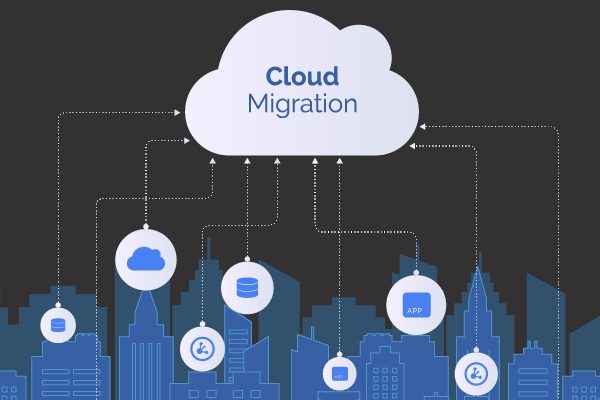According to ResearchAndMarkets.com, the global application transformation market is expected to grow from $9.7 billion in 2019 to $16.8 billion by 2024. According to the analytics firm, the market is being driven by the need companies have for “a robust and agile environment to increase scalability and efficiency in the existing business landscape, (the) high maintenance cost of existing legacy applications and leveraging emerging technologies and increasing efficiencies of existing applications.”
The ResearchAndMarkets.com report aligns with the findings of Lemongrass’s 2021 Legacy-to-Cloud study, which was released March 18 and includes input from more than 150 IT leaders–the majority of whom work in companies with at least $100 million in annual sales.
Following are the study’s highlights. The complete Lemongrass 2021 Legacy-to-Cloud report can be found here.
Data Point No. 1: Data access, security, cost savings motivate cloud migrations.
A combined 77% of IT leaders responding to Lemongrass’s survey said their primary motivation for migrating legacy systems to cloud infrastructure was either a desire to secure data, maintain data access or save money. Optimizing storage resources and accelerating digital transformation were other top reasons given. Meanwhile, 78% of respondents said that IT management systems were the most likely legacy applications to move to the cloud, while 46% said security and 39% said e-commerce.
Data Point No. 2: Security, people, process, cost complicate cloud migrations.
Considering the importance of data security, it’s no surprise that security and compliance were listed by 59% of IT leaders as the top challenge facing enterprises when moving legacy systems to the cloud. Meanwhile, 43% of respondents said migrations took too long, 38% said costs were too high, and 33% said a lack of in-house skills was the top complicating factor.
Regarding cost, 69% of respondents said the typical legacy-to-cloud migration cost between $100,000 and $250,000, and 57% of respondents said that somewhat or very rarely do these projects come in under budget. In terms of job skills, database integration experience was cited by 21% of respondents as the top skill required for performing legacy migrations, followed by experience with the chosen cloud platform (15%), previous migration experience (12%) and testing validation (also 12%). Sixty-eight percent of respondents said it was very or somewhat hard to find people with these skills, and 40% said migrations took at least seven months to complete.
Data Point No. 3: Employee training, data security are the top operating challenges facing enterprises once legacy systems have been migrated to cloud infrastructure.
Forty-two percent of survey respondents said that difficulty training end users was the top challenge to using legacy systems now running on cloud infrastructure. Forty percent said the top challenge was that security concerns had not been adequately addressed, 34% said the cloud platforms they had chosen did not work as expected, and another 34% said the top challenge to running legacy systems in the cloud was a lack of in-house skills. Meanwhile, 60% said that multi-cloud management skills were the most important job skill for IT professionals in terms of running legacy systems in the cloud. Half the respondents said the top skill was database management, and 48% said programming. 71% of respondents said it was hard or somewhat hard to find these people.
Data Point No. 4: Lessons learned: Migrating, running legacy systems in cloud
The top three lessons learned when migrating legacy systems to the cloud were:
1) allow for sufficient time (54%);
2) dedicate sufficient financial and people resources (52%); and
3) ensure that you have the correct people/skills in-house (52%).
The top three lessons learned when running legacy systems on cloud infrastructure were:
1) allow for sufficient time to manage the application (53%);
2) ensure that you have the correct people/skills in-house (52%); and
3) ensure that you achieve the outlined business goals (46%).
“The survey findings are very consistent with feedback we receive from our customers,” Vince Lubsey, CTO at Lemongrass, said in a media advisory. “Enterprises are anxious to reap the benefits of moving legacy systems to the cloud. They understand there are challenges but the benefits far outweigh the obstacles. The key to success is following best practices, proper training and time management. It also helps to have the guidance of an experienced partner to create the required cloud operating model.”
If you have a suggestion for an eWEEK Data Points article, email cpreimesberger@eweek.com.
